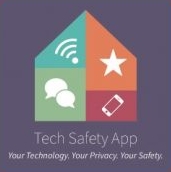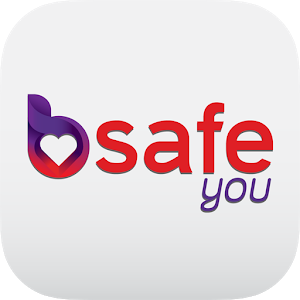Messages and posts are things you can never take back. Many Internet sites keep records of everything posted, and may share that information with other people including the police and potential employers. And there’s nothing you can do to control copies that may have been downloaded or forwarded by other parties. Always be aware of what your posting.
Nearly half of all teens who receive “sexts” forward them on to someone else, and 15% of teens say that they’ve had private chats made public. Messages or pictures you meant for just one person could end up anywhere and be seen by anyone.
Sexting can literally ruin people’s lives. When sexual messages or pictures reach other people—including family members, schoolmates, coworkers, or potential bosses—they can lead to broken friendships, getting kicked out of school, losing a job, losing a scholarship, or worse. Sexting should never be used as revenge.
All across the country, states are passing laws against posting or sending messages meant to hurt, insult, or spread nasty rumors about another person—including sexts. And posting or sending sexual pictures of anyone under the age of 17, even yourself, may be considered child pornography in the eyes of the law.
The best tech safety policy is education, supervision, and trust. Make behavioral expectations clear to teens. Have frequent discussions about the responsibility and privileges associated with the use of technology. Be familiar with technology teens are using. Email, texting, gaming, apps, web and cell phone cameras.
Your passwords are the only thing standing between you and a lot of potential trouble. 14% of teens say that they’ve had their online identities stolen by someone else. So even if you can’t imagine a friend using your account to do something nasty, keep your password private. Avoid obvious things like your birthday or your pet’s name.
Sexual predators are expert at poking around social networking sites to find new targets. Avoid posting detailed personal information like your full name, phone number, address, or school name, and don’t post details about where you are going.
There’s no way to be sure WHO you’re talking to online. Six out of ten teens say they’ve chatted online with someone who was probably lying about who they were, and 7 out of 10 say they’ve gotten messages from people they didn’t know. Never agree to an in-person meeting with someone you only know online.
Think about the consequences before you send a sexy picture or sexual message. Think about some of the places the message could end up. How would you feel if everyone at school saw it? What would your friends and family think? Keep in mind that the message or image could end up anywhere, and that you won’t be able to take it back.
More than half of teen girls (and about one in five guys) say that they’ve felt pressured to sext a girlfriend of boyfriend. Keep in mind that no one has the right to force you to do anything sexual.
Source: http://www.nctsnet.org/sites/default/files/assets/pdfs/staying_safe.pdf
Whisper
lets users set up anonymous accounts to make their messages or confessions overlap an image or graphic (similar to e-postcards), which other users can then "like," share, or comment on. While it allows for creative expression, it can also take overly personal content viral. The app also shows a user's location. Although the app is geared toward older teens and adults, younger children are finding their way to it.
Tinder
The app is rated ages 17+ but Tinder's privacy policy allows teens as young as 13 to register. Tinder helps people find others in their geographic location and allows users to view each others' photos and start instant messaging once both people have "liked" one another. The geo-location features and anonymous nature of the app put kids at risk for catfishing, sexual harassment, stalking, and worse.
AskFM
The app is rated ages 13+ and has been used for hurtful cyberbullying that has been linked to suicides. British schools have sent home letters calling for students to stop using ask.fm because of its use in several cyberbullying incidents there, and its loose regulation and lack of monitoring. In response to the uproar in the U.K., the site added a button where users can report abuse, but parents feel too late.
IMVU
A Virtual World Game, that shows nudity and sexual encounters in areas that are for 18+.there is sexual talk in the regular area of IMVU as well. There is a Chat Now feature that randomly pairs users with other users and can lead to inappropriate pairings and interactions. All profiles are public, and there can be bullying and predators trying to get other users to share their phone numbers and to send pictures.
Snapchat
Some kids send racy pics because they believe the images can't be saved and circulated. But pictures don't completely disappear from a device, and users can take a screenshot before an image vanishes in the app. The"disappearing photo" apps might embolden kids to send more explicit photos and texts.
Bigo Live
Bigo is a live streaming app. It is rated for teens 17 and up. Users can vlog about their lives, live stream video game play, and host their own shows. There is no age verification and users have to provide personal info like their age and location. This is a place where bullying, nudity, violence, and profanity is common.
Kik.
The app is rated ages 17+, but there is no age verification so anyone can download it. Like some other instant messenger apps, Kik allows your teen to connect with others using just a username (rather than texting from her phone number). But it begs the question: Should teens be texting with people beyond their phone contacts?
Omegle





































